Q&A: Taking up the cello in later life
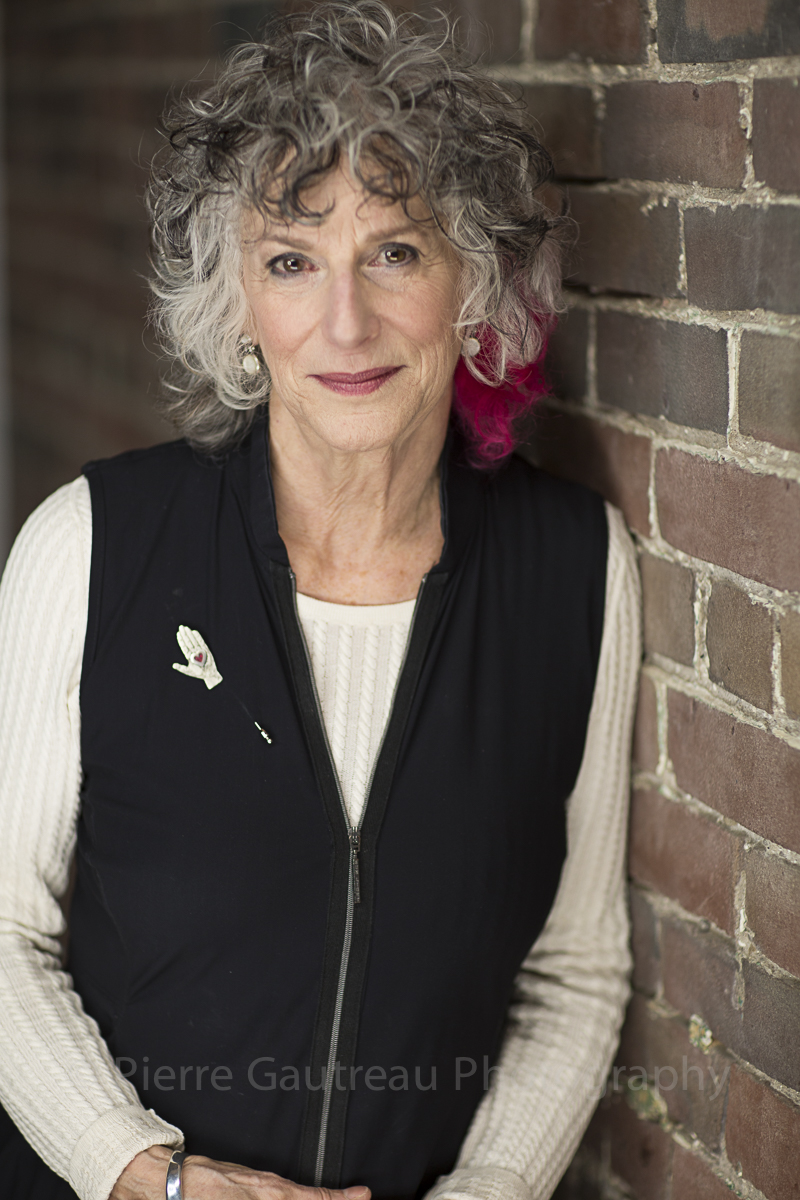
The senior years in life are often associated with retiring, slowing down or playing golf. But Mavis Himes had a different idea: She took up the cello. It was a long-held dream, one that she needed to act on. Six years later, she is still going strong, despite setbacks like a bicycle accident and an arduous recovery.
She documented her musical journey in her book “Cello Notes: Music and the Urgency of Time,” which was published in August and is available on Amazon and at other booksellers. More information is available at her website, mavishimes.com.
The book is an engaging, personal account that offers insights for those who have always wanted to learn an instrument. We recently talked with Dr. Himes, a psychoanalyst who lives in Toronto, about her experiences. – Bob Goetz
What led you to take up the cello?
I was in my late 60s and was contemplating retirement—I’ve been a psychoanalyst for 45 years. I thought I may have a window to do something like take up an instrument. I had played piano as a child, but I didn’t want to go back to that. I always wanted to play a string instrument.
The question, then, was which one. A friend who is a cellist told me that the violin can be rather awkward to hold and to play, and that the cello is much more natural, especially at my age. So I thought, okay, it’s the cello. Plus I love the repertoire.
How did you get going?
First, I needed to find a teacher, but I didn’t know anybody. I asked a friend for a recommendation, and she told me about a young woman— Dr. Dobrochna Zubek. She is a performing artist and very talented, and she agreed to take me on. We connected, and she has become a mentor and a dear friend
The next step was to get an instrument, which I bought, and we were on our way.
Is it what you expected?
I had no idea what I was getting into. I would explain to my friends that in playing the cello there’s the right arm—the bowing arm—and the left, which plays the notes on the fingerboard. Both were a challenge to get used to. I also needed to learn the bass clef. Even though I had played piano and learned both the bass and treble clefs, I remembered the treble clef much more.
It was information overload. Even though the lessons were presented to me in very small bites, it was a lot to take in. The brain in later life just isn’t as sharp. For example, I’m very good on languages—French, Hebrew, Spanish, some Italian. But learning an instrument and the language of music was different.
How did it go, the early stages?
I found there were two levels to learning the cello. The first was the physical. I had to get my body used to playing the cello, getting my fingers and my hands and my arms comfortable with the instrument. My teacher told me it would take time for my muscles to develop. It reminded me of pilates. You can’t just ask someone to touch their toes right away. It takes a while.
I even thought of it in terms of my analytic practice. The analyst may or may not see things, but there’s a timing and a moment when things happen, fluidly and organically. You can’t force it. So even though I wanted my hands to go faster, I knew intellectually that they couldn’t go any faster. They will take the time they need.
That’s why I initially called the book “The Urgency of Time.” I felt time was urgent for this learning journey and I could always use more time.
What kept you going?
I love challenges. But there were times when I felt like I was going up a hill and then I would plateau for what seemed like ages. But I knew that as long as I was seeing gains, even if it was over weeks or months, I would eventually get there. That’s the principle I followed.
What was practicing like?
People find scales boring. But I love playing scales. I like being able to play them in a way that sounds really beautiful, whatever I am trying to work on—intonation, or fluidity, whatever it is. My younger self didn’t see it the same way. As a child, I practiced because I was told to. Now, no one is telling me. I hardly miss a day, and I practice an hour a day, at least. When I don’t, I miss it. No one is holding this over me. Even my husband is surprised at the strength of my commitment.
How do you find the time?
When I started, my practice (as a psychoanalyst) was full, but I was starting to cut back. Now, I work one day a week. So I have more time. Plus, I’m very efficient and organized. I started to give things up. I don’t spend much time reading the newspaper, for example.
I make the time for music. I would love to play chamber music—that’s my goal. I joined this amateur orchestra, and my playing has jumped in leaps and bounds in terms of sight reading and being able to count. My private lessons are still my priority, but playing with others has become really important. I know that eventually I’ll play chamber music.
What advice would you give someone who is taking up an instrument?
Be patient with yourself, and appreciate what you can do, not what you can’t do. Expect that you’re going to be frustrated. Don’t get turned off by that. It’s an up-and-down process, like everything else in life. If you’re going to take it on, know that the journey is more important than the outcome.
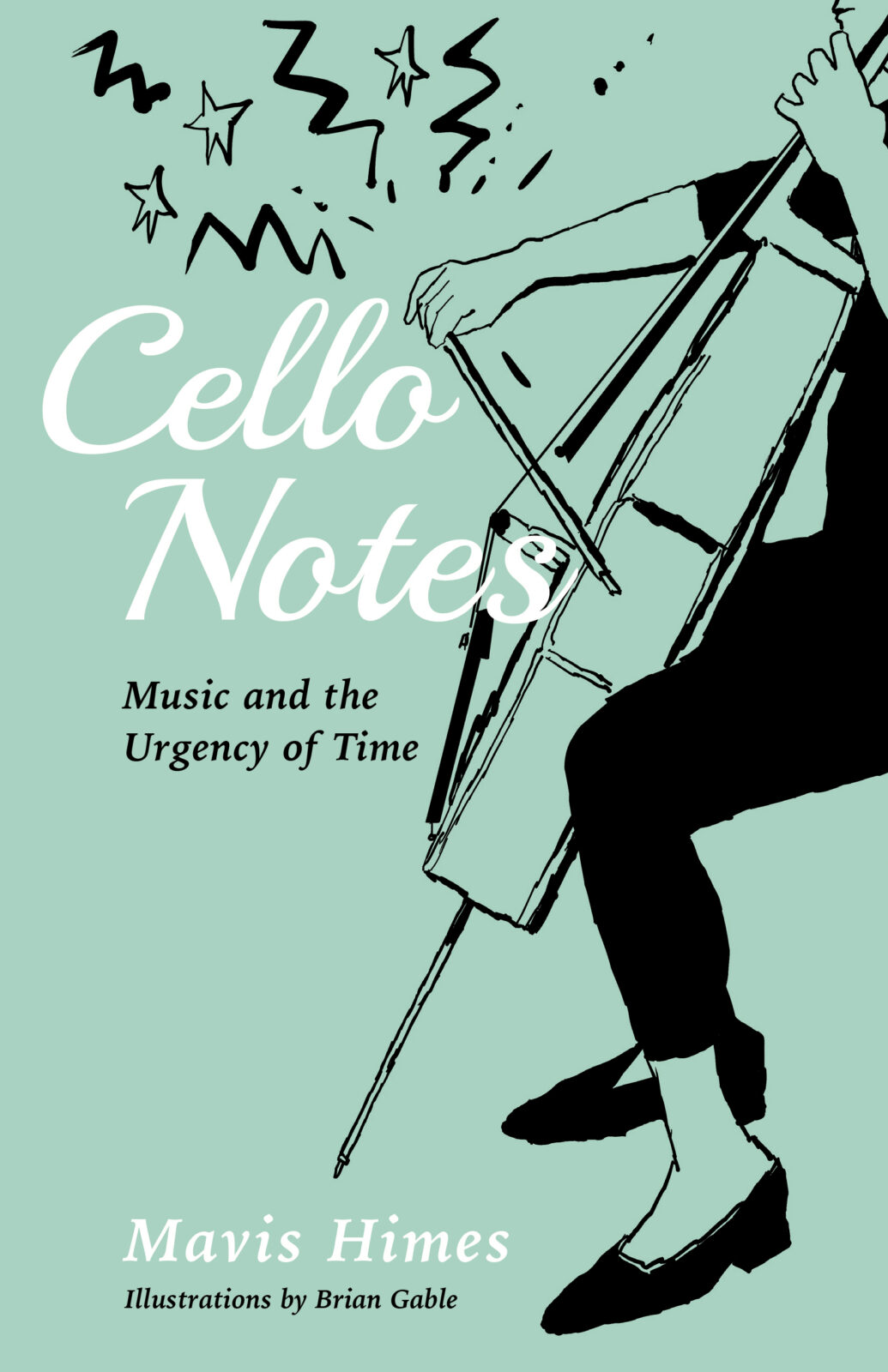
More Articles
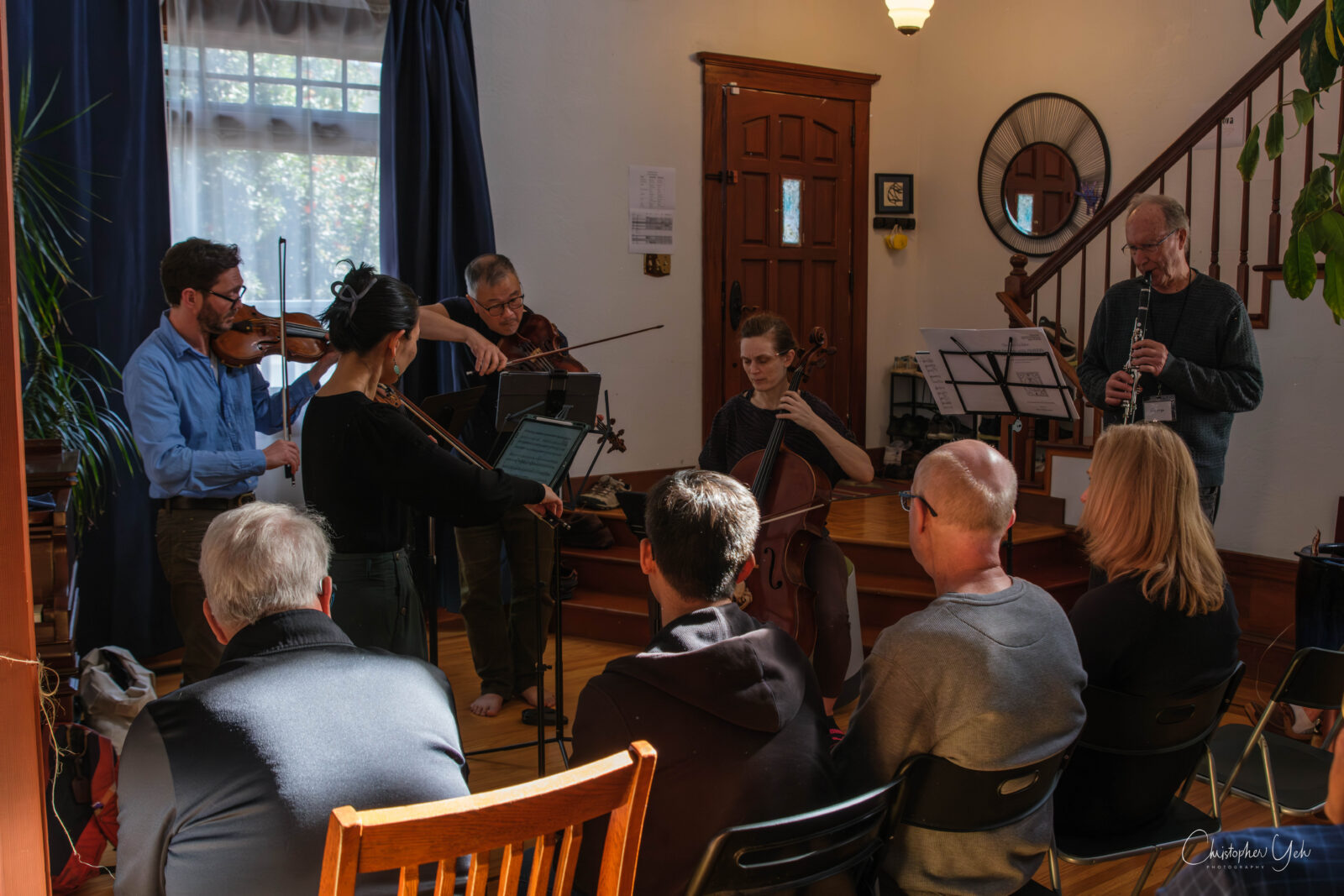
Sound and Sustenance: A Report from the Del Sol Adult Chamberfest
On a sunny weekend last month in San Francisco, 30 amateur chamber musicians from around the country gathered in the home of two members of the Del Sol String Quartet for the annual DEl Sol Adult Chamberfest. Neighbors would have heard strains of Britten, Janáček, Shaw, Golijov, Bunch, Beethoven and Brahms, along with laughter and good times!Read More ↗
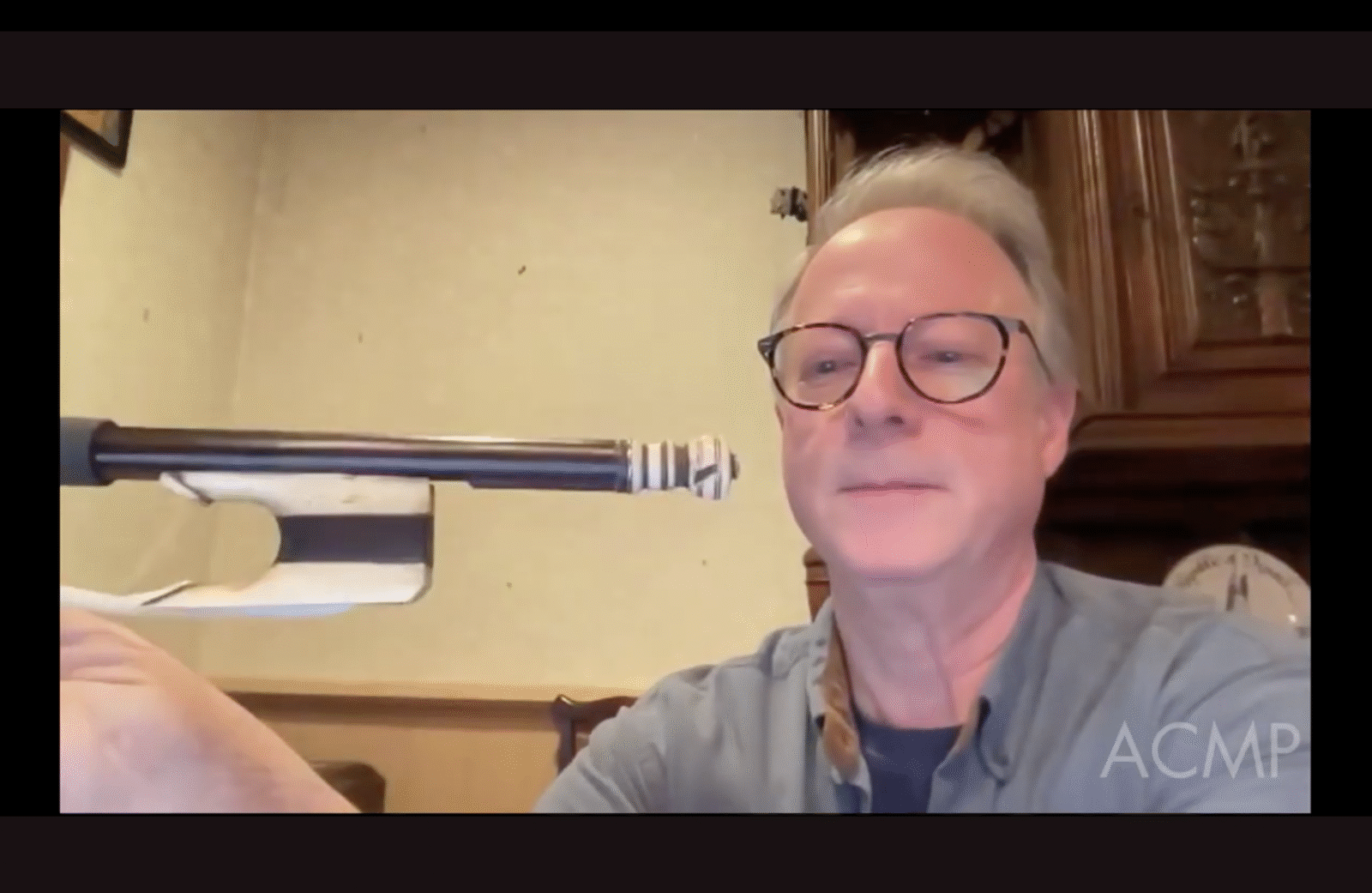
New ACMP video: “Everything you always wanted to know about bows but were afraid to ask” with Gabriel Schaff
ACMP just released the video from Gabriel Schaff's recent online talk, "Everything you always wanted to know about bows but were afraid to ask." After an illuminating presentation on the evolution of the modern bow, the questions kept pouring in. There's so much to learn and discover from Gabriel and your colleagues in ACMP.Read More ↗
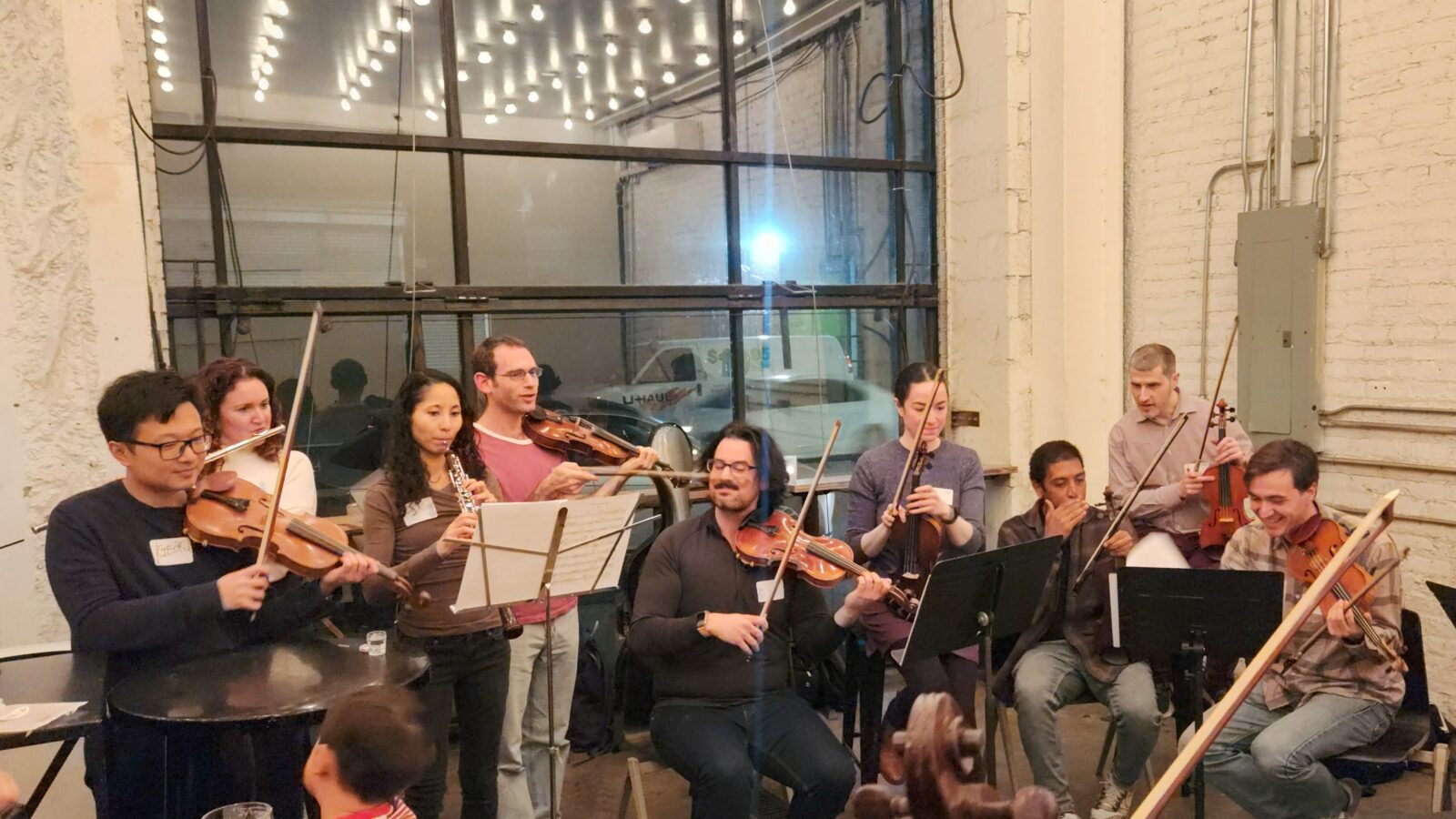
Mozart in a Brewery! Our First Young ACMP Event
Have you ever played Mozart in the middle of a brewery just for fun? That’s exactly what happened in early January when local Young ACMP members met up at Grimm Ales in Brooklyn. We co-hosted the event with ACMP member Ben Bregman, who brought music, friends new to ACMP, and a few of his young students and their parents.Read More ↗
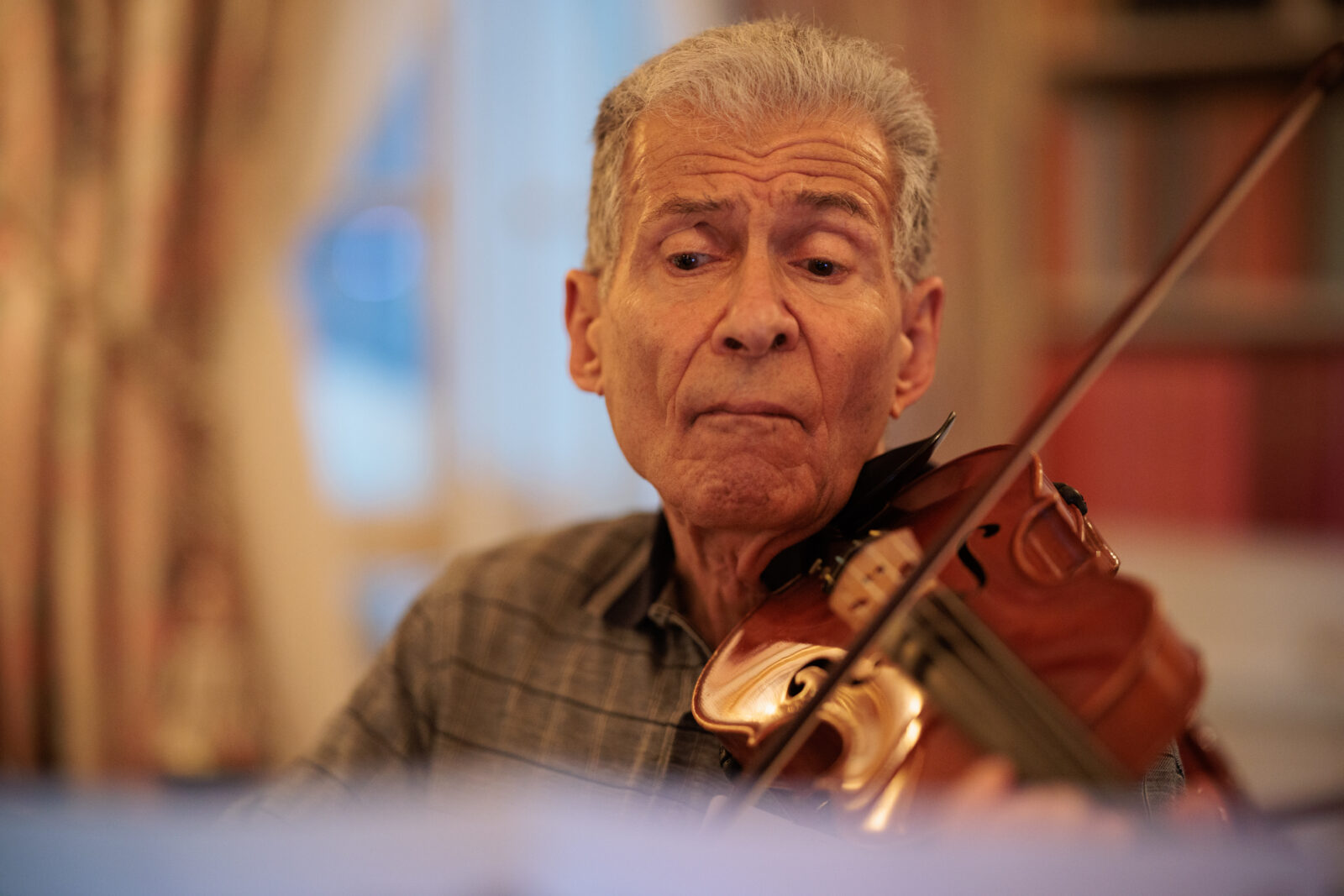
ACMP presents the 2025 Susan McIntosh Lloyd Award to the SoCal Chamber Music Workshop in memory of Ron Goldman
This past Fall ACMP gave its 2025 Susan McIntosh Lloyd Award for Excellence and Diversity in Chamber Music to the SoCal Chamber Music Workshop in honor and in memory of SoCal's founder and long-time ACMP board member Ron Goldman. Watch my interview with Julie Park and read Adam Birnbaum's touching tribute to Ron.Read More ↗
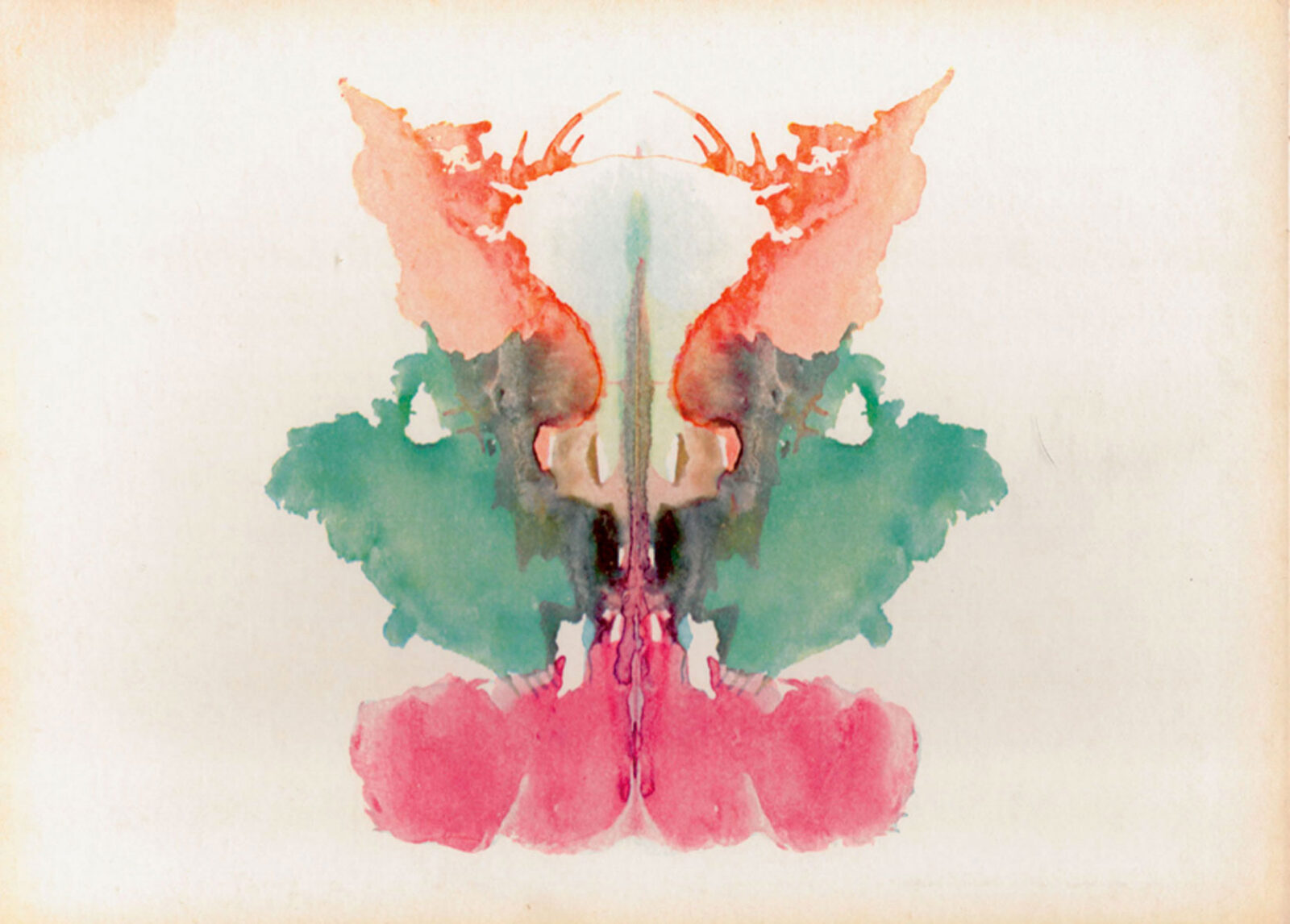
Turning ink blots into music – a discussion on the meaning and madness of notation
Join Cal Wiersma and a live string quartet for an illuminating class about decoding musical notation and translating it back into a musical line, live in Brooklyn and live-streamed on YouTube.Read More ↗
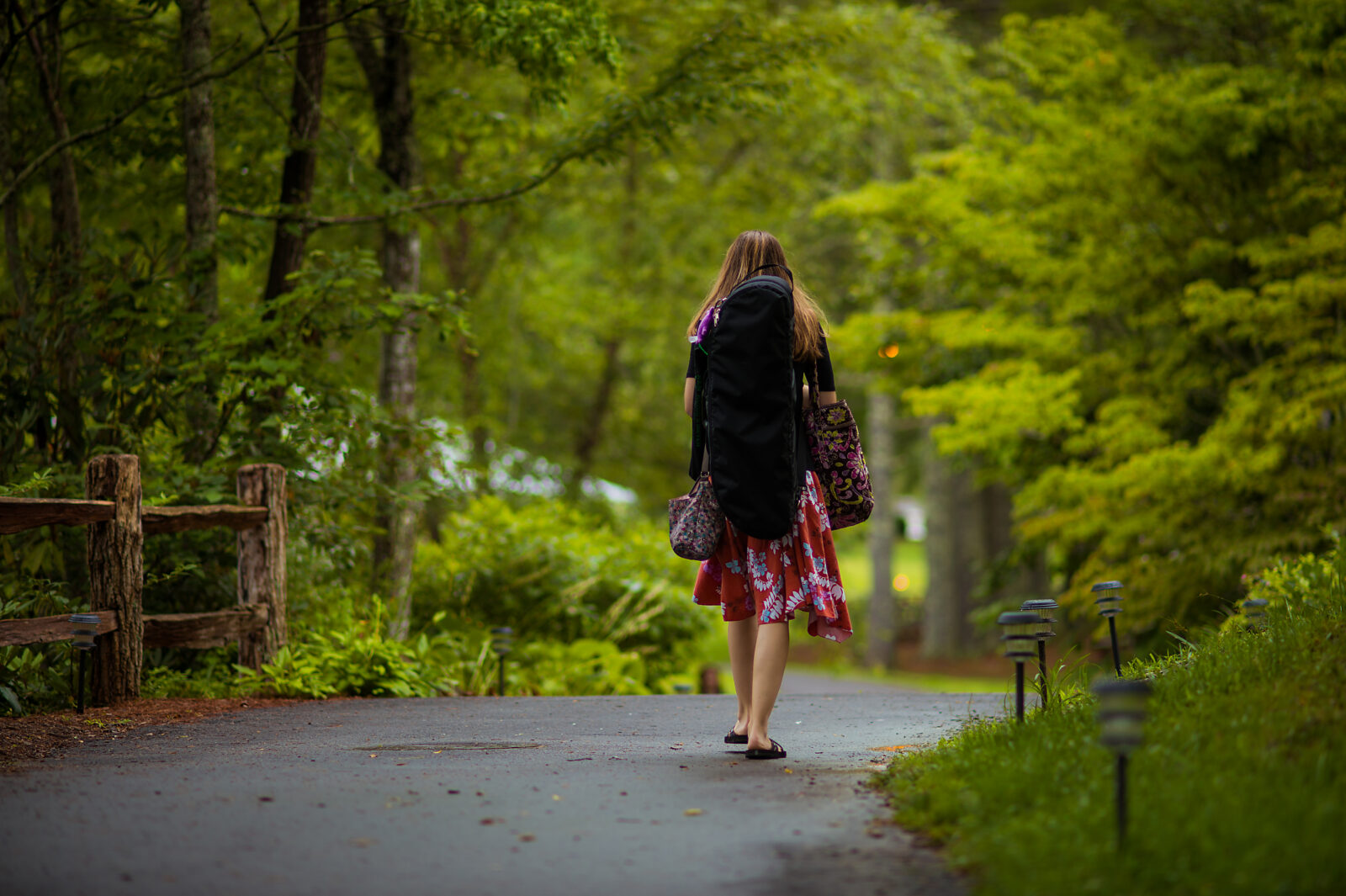
A New 5-Day Summer Home for Adult Chamber Musicians in Brevard
Brevard Music Center is launching the inaugural Adult Chamber Music Workshop, June 3-8, 2026, and we could not be more excited to welcome adult amateur musicians to our beautiful mountain campus in Western North Carolina. The program features focused rehearsal time, inspiring coaching, great colleagues at your stand, and the simple joy of spending time immersed in chamber music.Read More ↗
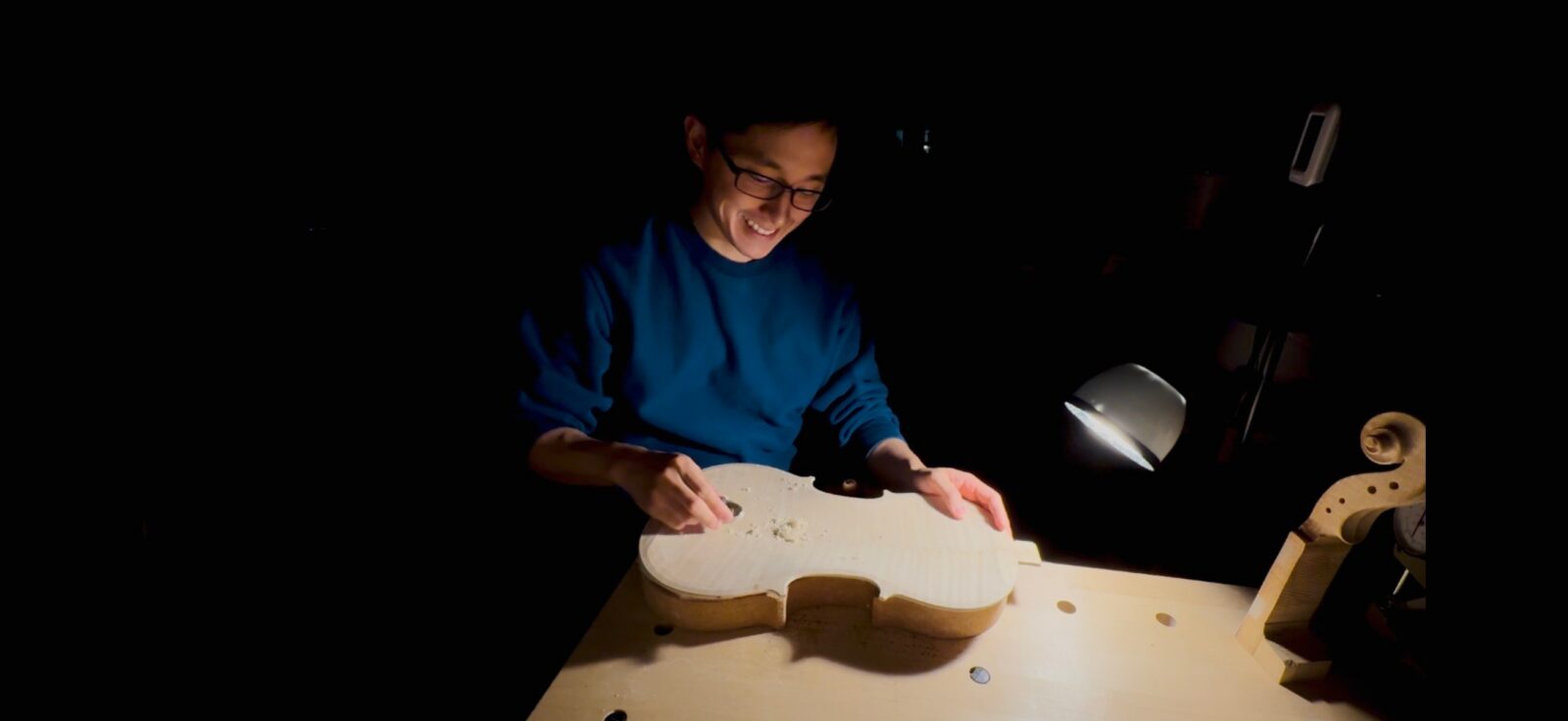
Charles Hsu – oncologist, violist, luthier
Charles Hsu has packed a lot into his 33 years. Born in the New Jersey, he grew up in Taiwan, moved back to the United States to attend MIT, and, after a stint as a management consultant, pursued his medical studies at Yale and Harvard. Today, he is Dr. Hsu, a junior attending medical oncologist at Memorial Sloan Kettering Cancer Center in New York. But through all of these pursuits, there is his love of chamber music.Read More ↗
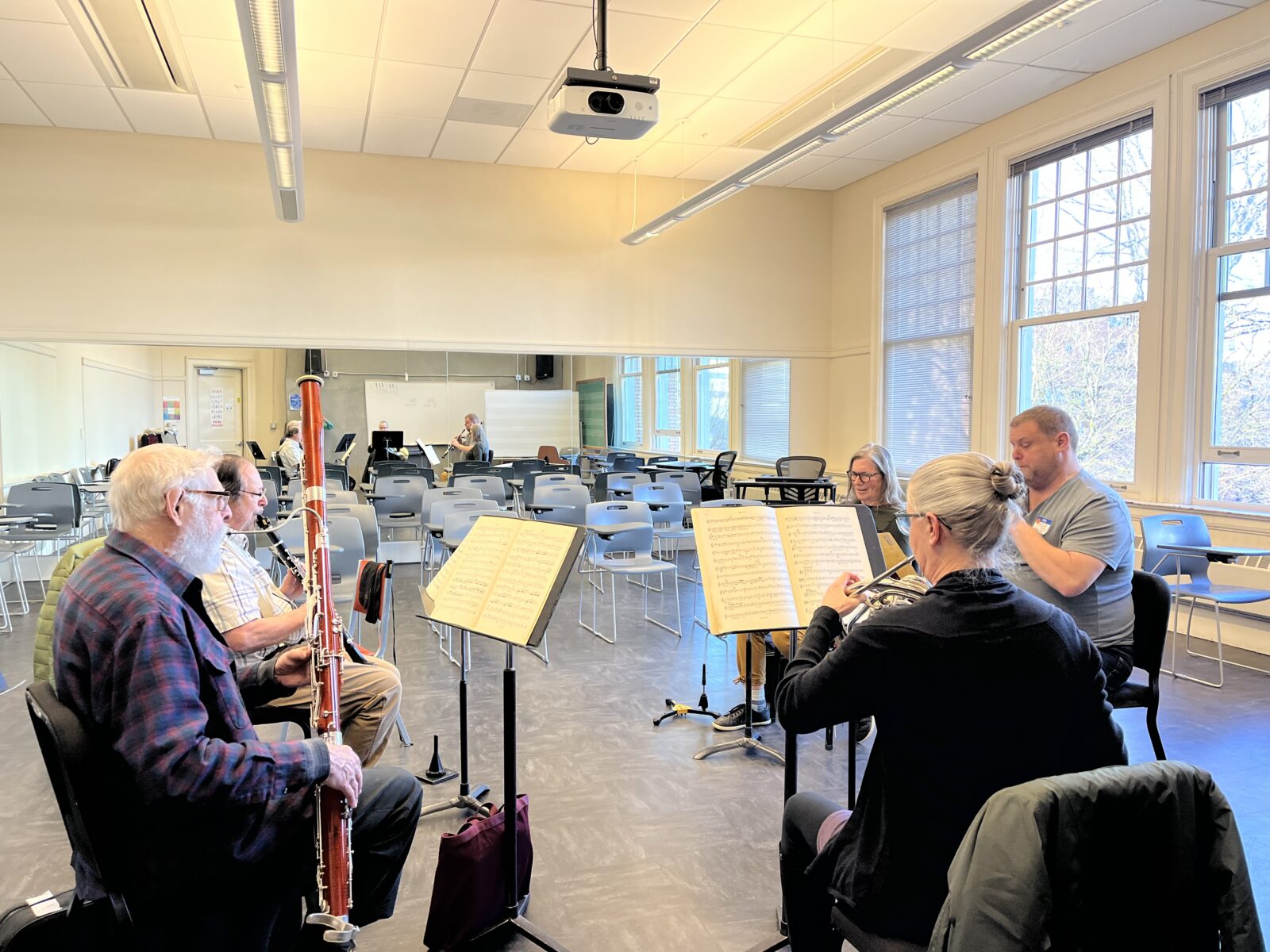
The Oregon-Washington ACMP Play-In
On January 17, 2026, 45 chamber musicians, ages 23-80, met at Portland State University's Music School Hall in Portland, Oregon for a Play-In organized by NAOC councilor Virginia Feldman.Read More ↗
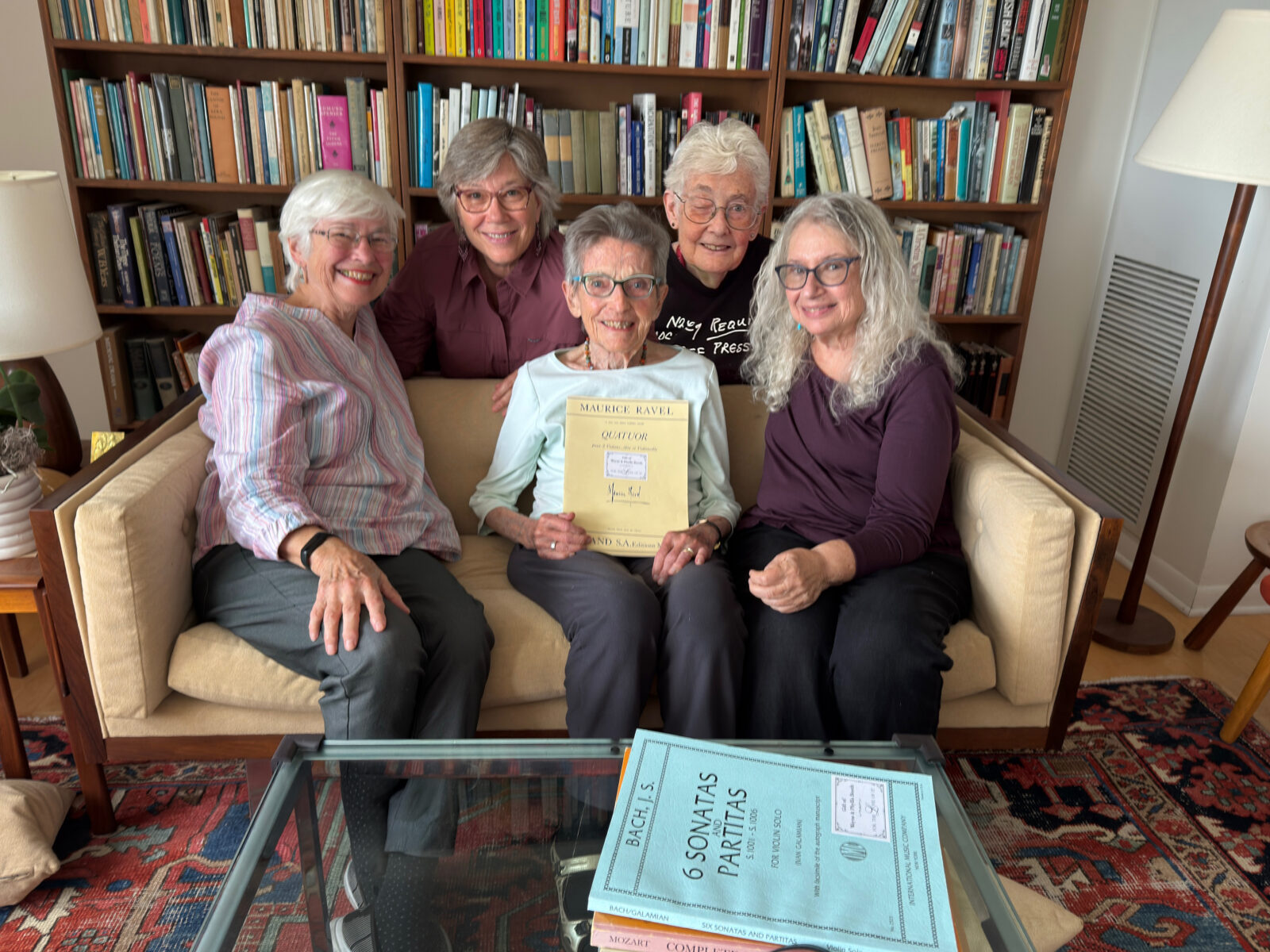
For the Love of It: A Legacy
What to do with all that music, when you finally, reluctantly, stop playing? At 99, Phyllis Booth decided to gift her collection to Golden Chamber Music at Sleepy Hollow, where she and her late husband Wayne Booth had a long, joyful connection since shortly after its founding in 1969.Read More ↗
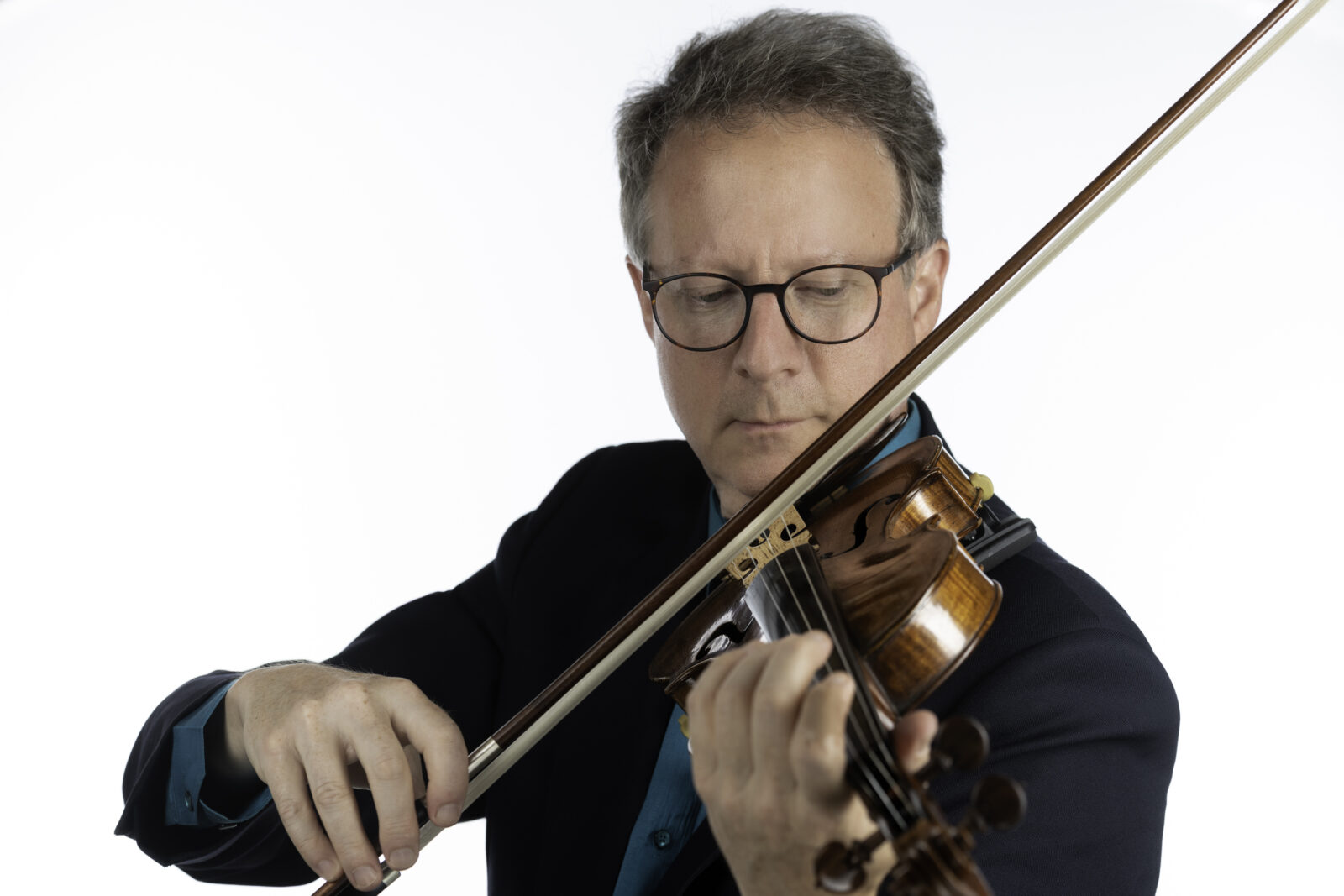
Everything you always wanted to know about bows but were afraid to ask
Join Gabriel Schaff - violinist, scholar and author of "The Essential Guide to Bows of the Violin Family" for an illuminating journey through the history of the bow to everyday tips (no pun intended) about caring for your bow, choosing a new one - and....everything you always wanted to know but were afraid to ask!Read More ↗
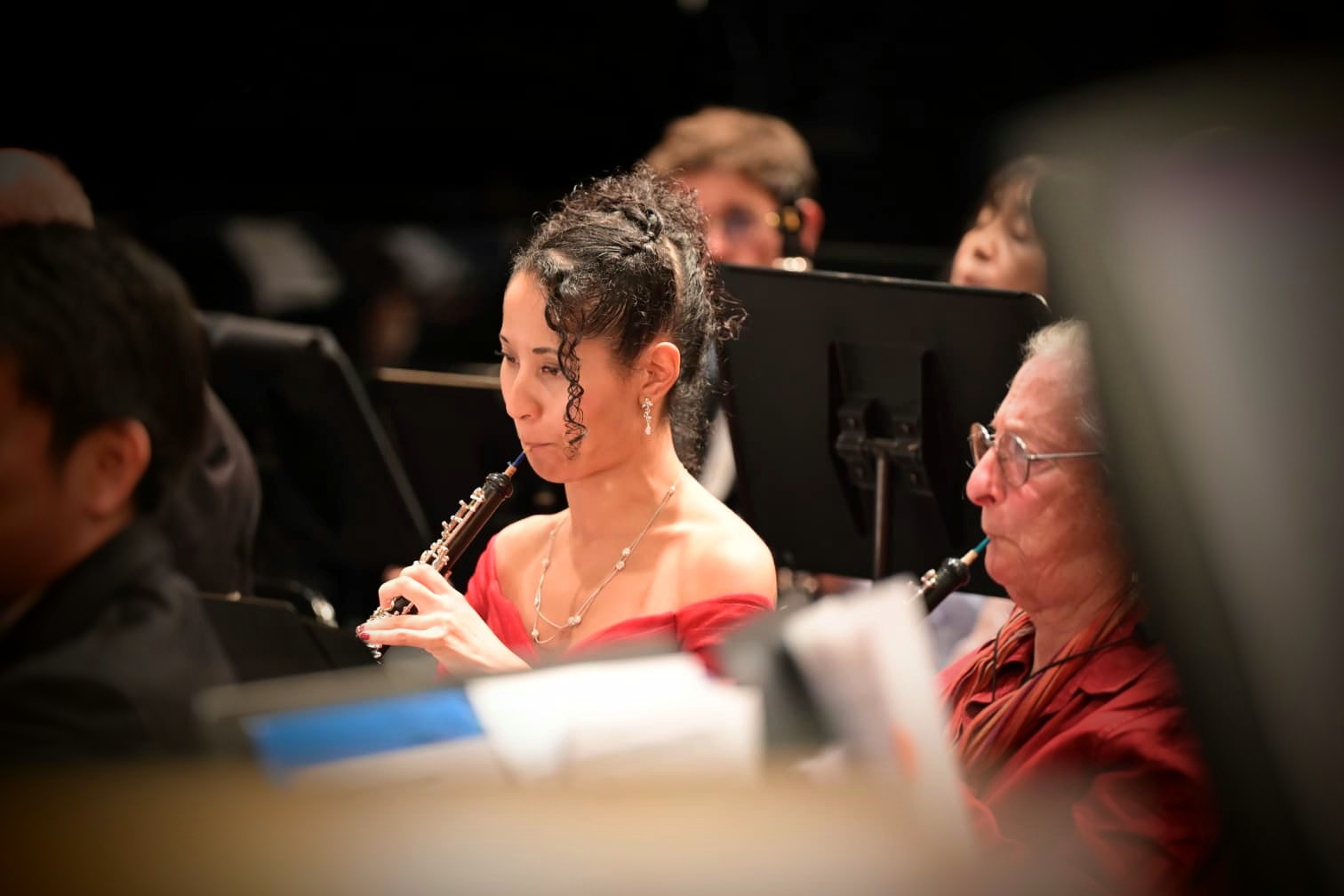
Kayana Jean-Philippe: The serious business of an amateur oboist
When it comes to the oboe, Kayana Jean-Philippe is what you might call a serious amateur – someone who pursues her passion at a high level, but does not make a living at it. One of her most consistent musical outlets has been the United Nations Symphony Orchestra, which she joined 10 years ago and is principal oboist. Another musical outlet is ACMP, which she said has connected her with new people and new musical opportunities.Read More ↗
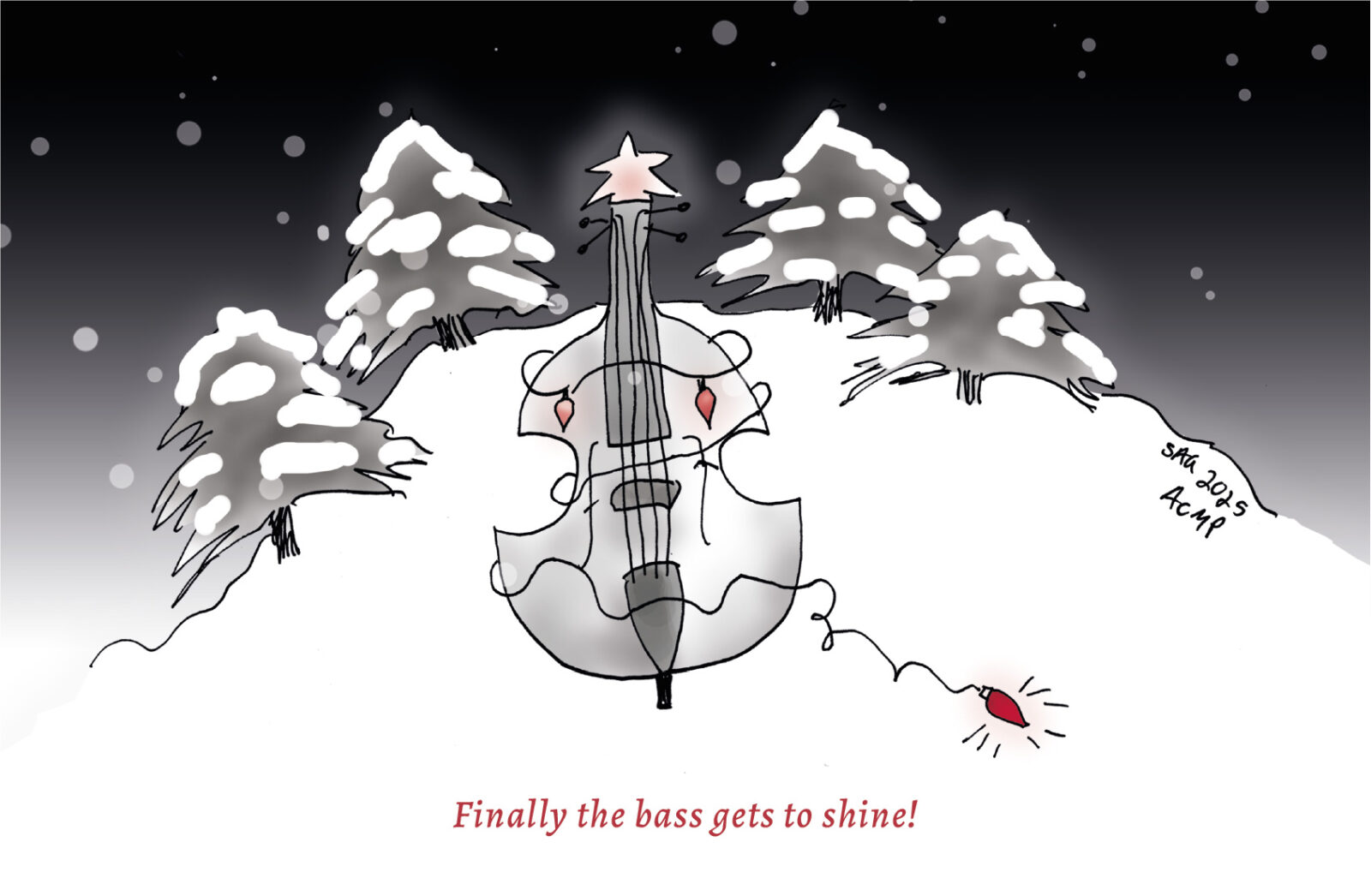
Announcing the 2025 Holiday Caption Contest Winners!
ACMP's 4th annual Holiday Caption Contest was a success, with 69 captions from 41 ACMP members. This year's winners are Valerie Matthews, Peggy Reynolds, and Matthew Greenbaum. Congratulations to everyone who came up with so many wonderful captions for this year's cartoon!Read More ↗
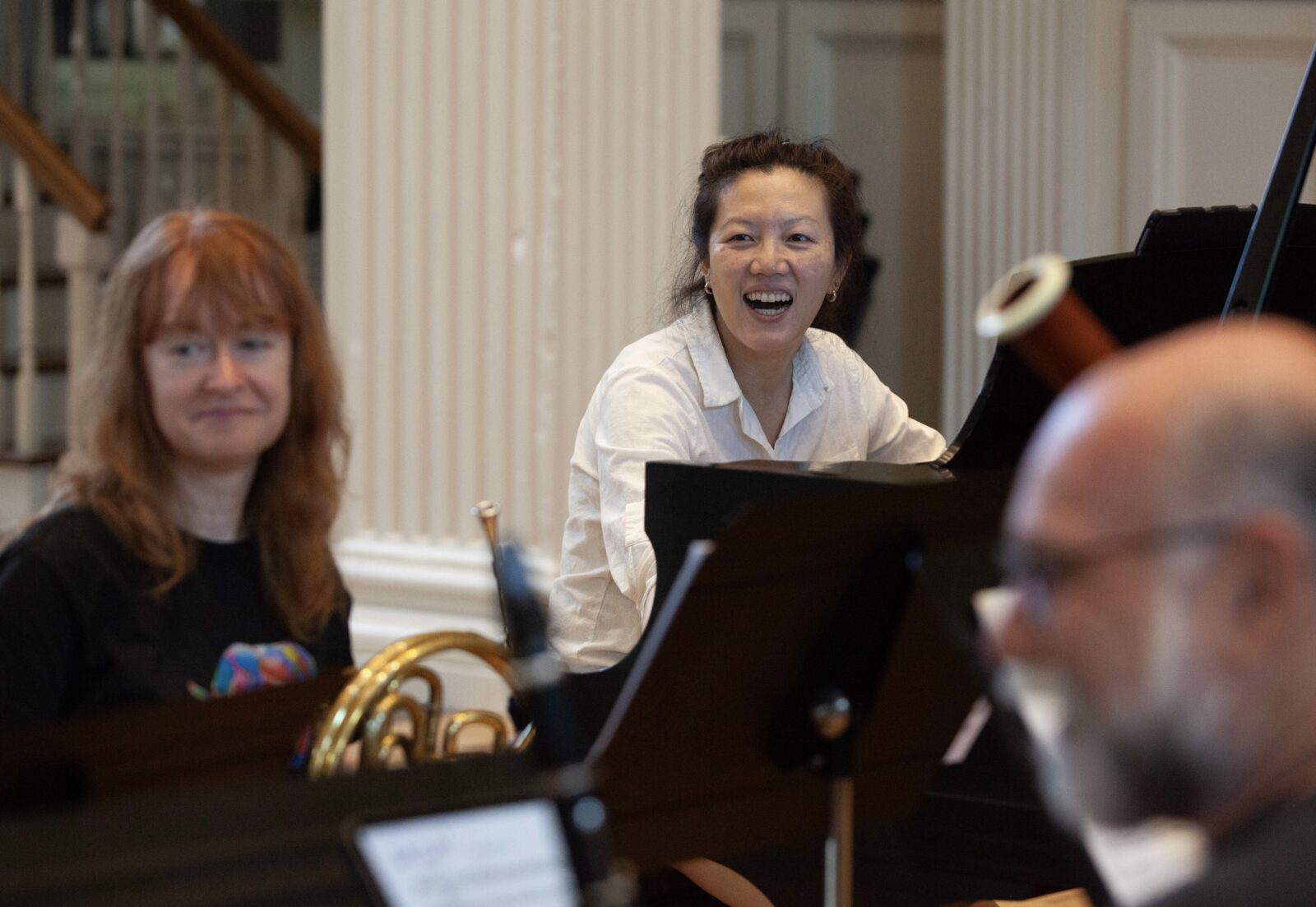
Announcing ACMP’s 2026 Workshop/Community Music Grantees
ACMP is proud to announce its 2026 Chamber Music Workshop and Community Music grantees. This year we awarded $168,000 in grants to 73 chamber music workshops and semester- or year-long programs in 10 countries, and 31 US states. (Photo by Claire Stefani.)Read More ↗

Mystery Donor Reveal: An interview with Louise K. Smith
An anonymous member of ACMP recently spearheaded a fundraising initiative for ACMP in the two week lead-up to Giving Tuesday, offering a $25 gift for each donation received from November 18, 2025 through Giving Tuesday (December 2.) This mystery donor just revealed her identity: Thank you, Louise K. Smith! I asked Louise some questions about her background as a pianist, involvement with ACMP over the years, and about her recent matching grant idea.Read More ↗
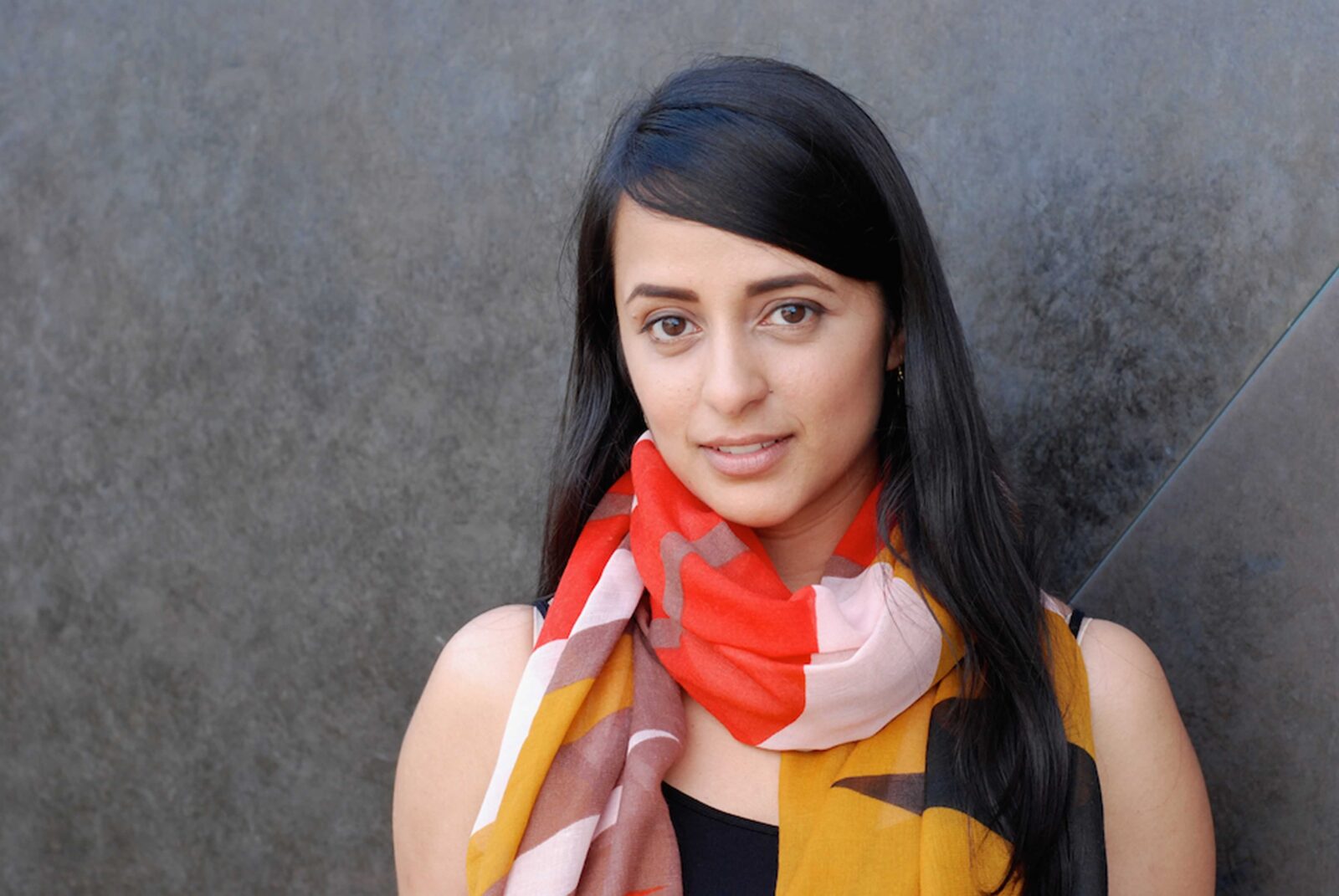
A Bridge from West to East – The Chamber Music of Reena Esmail
After a recent visit to her father's hometown in India, ACMP member pianist Sonya Subbayya Sutton returned to the United States with a renewed curiosity about her Indian culture and music. This led her to explore the music of Indian American composer Reena Esmail. Read about Reena's own voyage of discovery in Indian music and check out links to her scores and recordings.Read More ↗
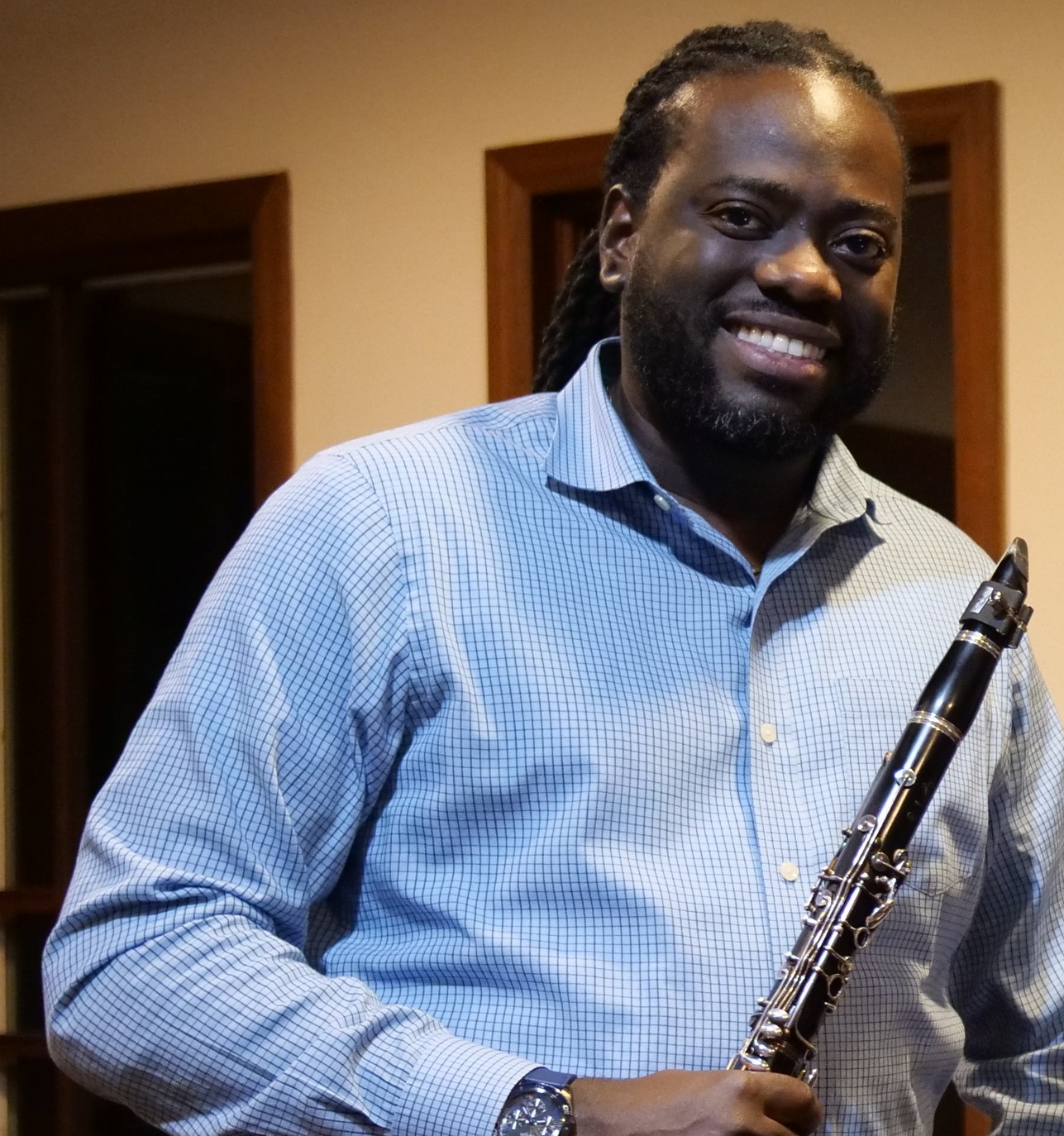
ACMP Member of the Month: Kwame Lewis
Kwame Lewis is not your typical accountant. Born and raised in Trinidad, he emigrated to the United States in 2003 at the age of 23 and set about building his career. Along the way, he lived in the Washington area for an extended period, got married, had two boys who are now 5 and 3 years old, and since 2019 has lived with his family in Melrose, Mass., near Boston. One constant through his journey, though, has been his love of the clarinet and chamber music.Read More ↗
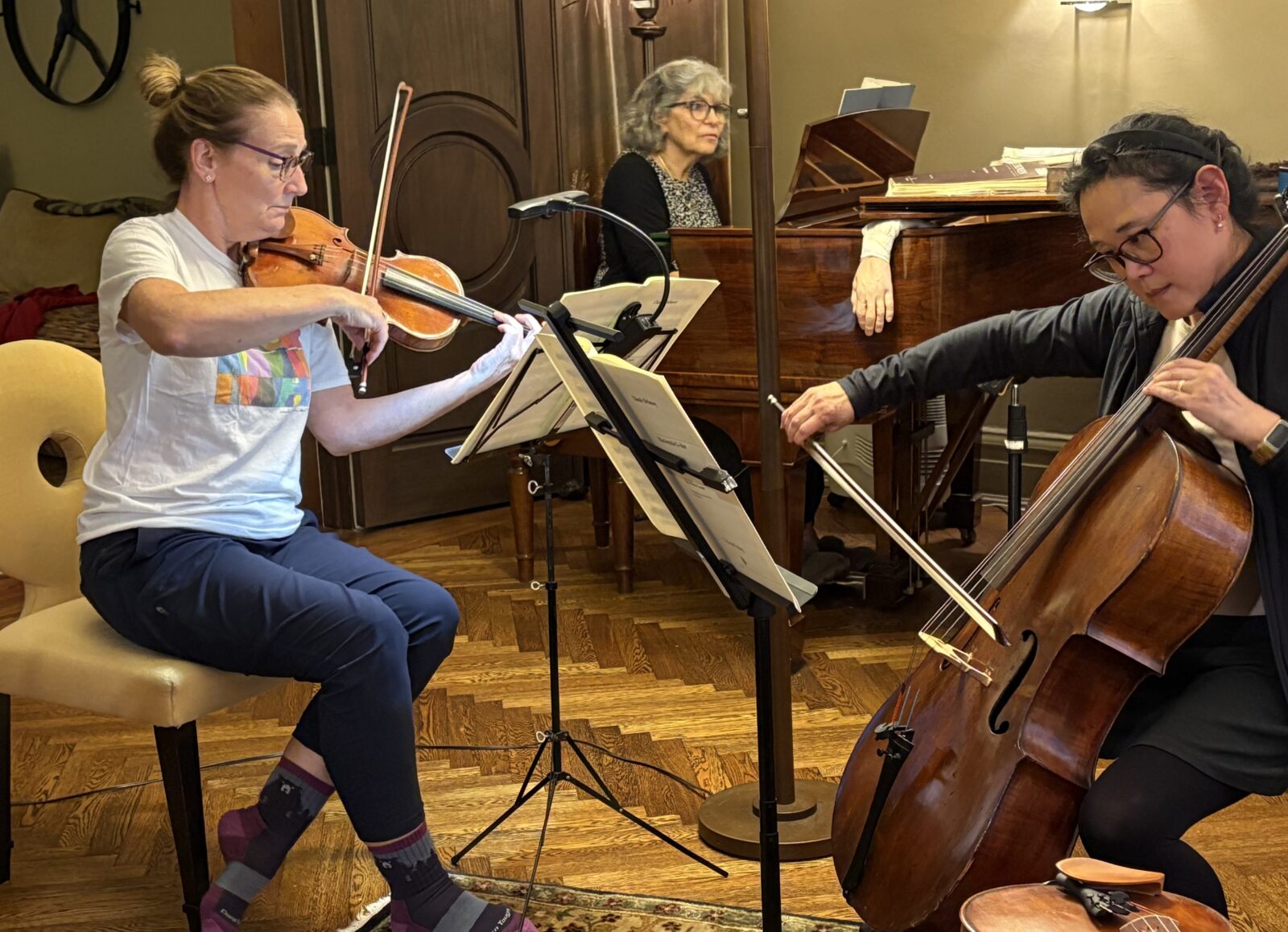
Chamber music for a cause: amateur musicians support Music for Food
ACMP member pianist and violist Arlene Hajinlian is as active a chamber music organizer as she is in sharing her time and space for social causes. This Thanksgiving holiday weekend she came up with a way for adult amateur chamber musicians to have a lot of fun while raising money to support New Yorkers in need: three consecutive chamber music parties as a benefit for Broadway Community through Music for Food.Read More ↗
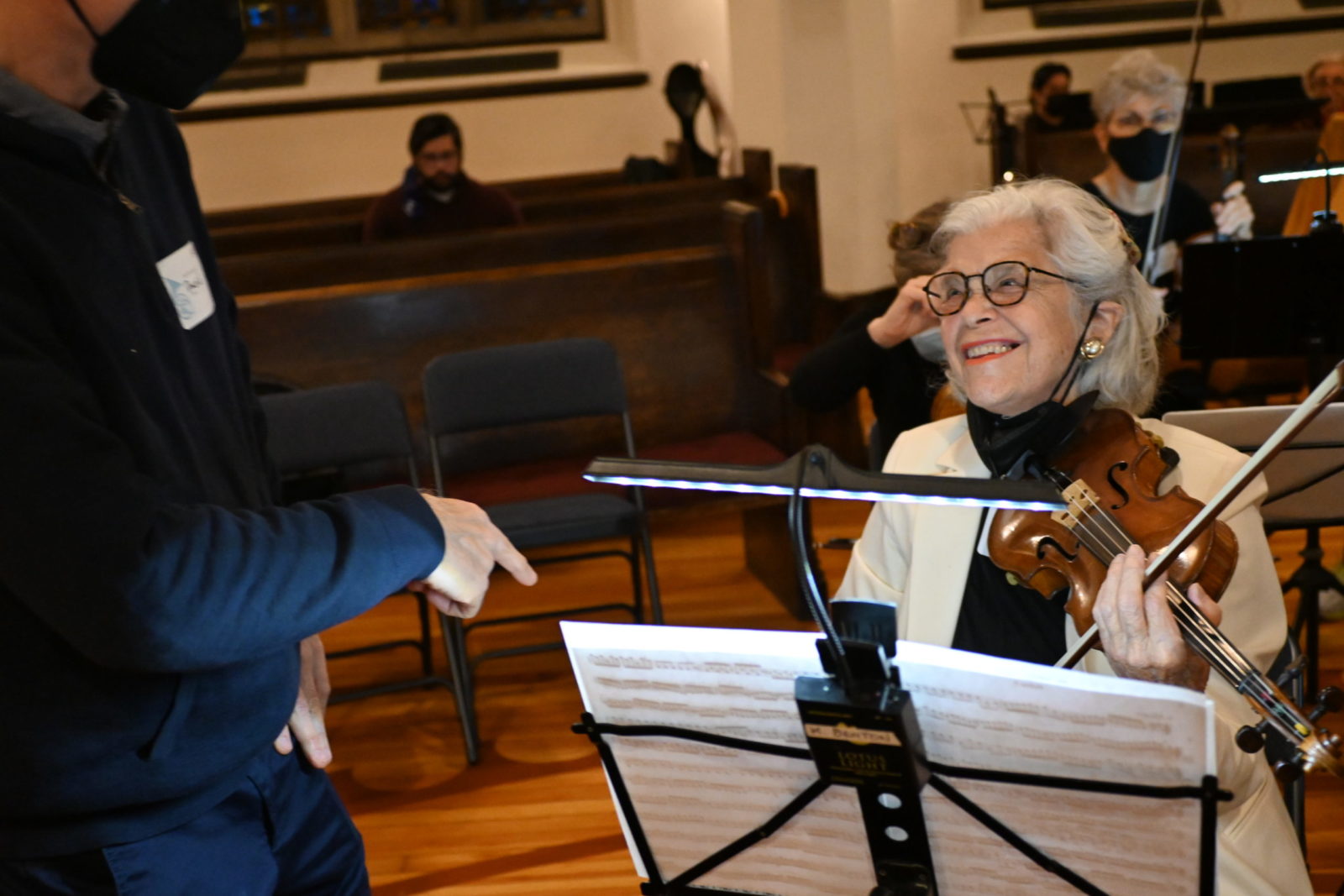
Remembering Kate “Kitty” Bigelow Benton (March 29, 1935 – November 2, 2025)
ACMP mourns the loss of Kitty Benton (1935-2025), a former board member, board secretary and longtime editor of the ACMP newsletter. Read about Kitty's life and watch a video of Kitty telling her favorite stories about ACMP in June 2021.Read More ↗
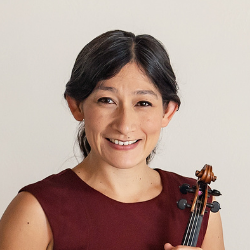
New Video – Meet The Artist: Harumi Rhodes
ACMP Executive Director Stephanie Griffin hosts a lively Zoom conversation with violinist Harumi Rhodes about her musical upbringing and career with the world-renowned Takács Quartet.Read More ↗
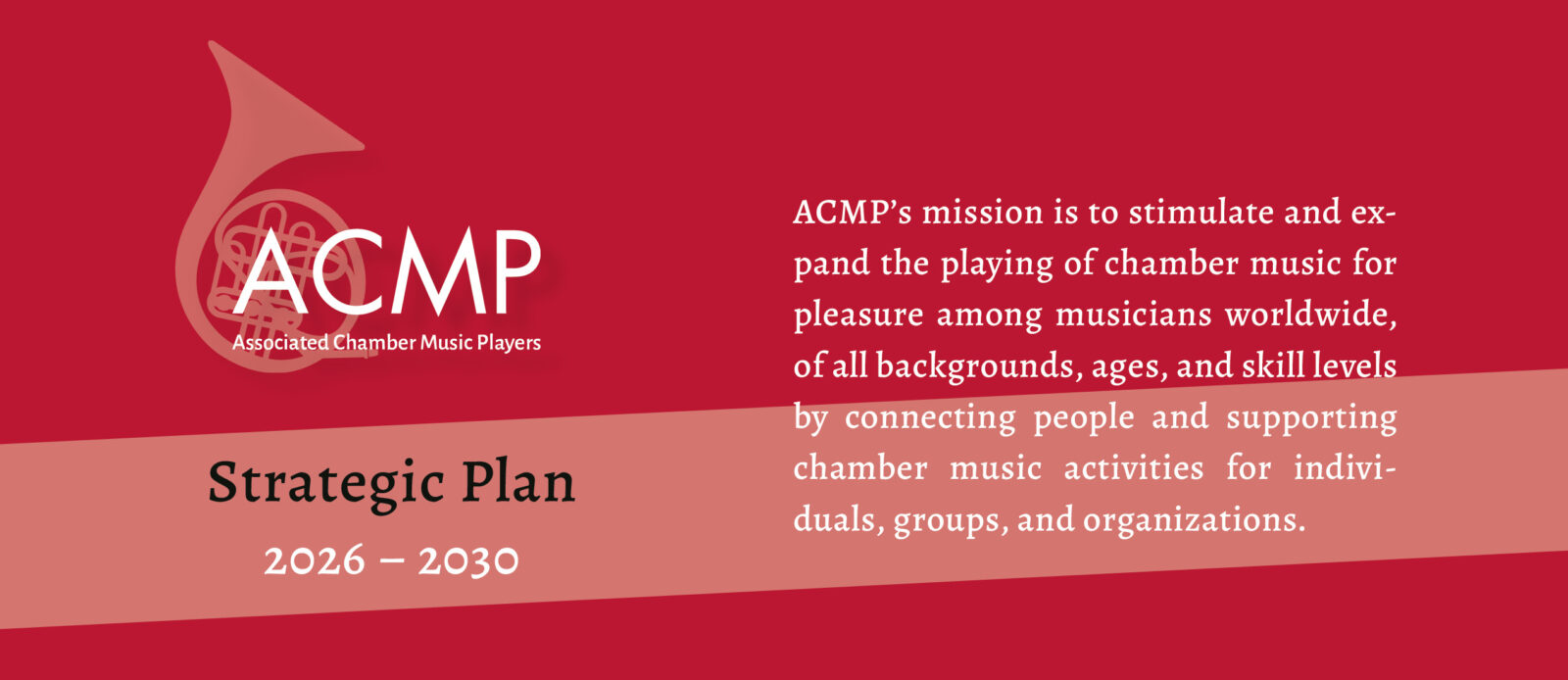
ACMP Strategic Plan for 2030
For the past several years, ACMP’s membership has grown dramatically, as has the popularity of its programs. Building on this momentum, ACMP’s Board and Executive Director completed a strategic plan to chart a course for the organization for the next five years. ACMP’s Board and Executive Director developed a new vision for the organization and a plan to strengthen member services, grants, operations, and finances to advance ACMP’s mission by 2030 and beyond.Read More ↗